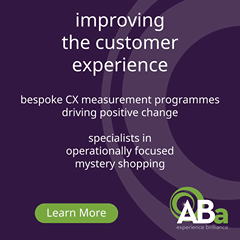How retailers can transform their debt management processes in the current cost-of-living crisis
By Craig Naylor-Smith, CEO, Parseq
Never has it been more important for UK retailers to ensure they have a healthy cash supply flowing through all parts of their business.
Not only does the UK remain in the middle of a cost-of-living crisis, driven partly by ever-escalating energy costs and rising food bills, inflation remains stubbornly high, and bills seems to be escalating ever-skywards on all fronts. This is placing consumers under an enormous amount of financial pressure, enough to ring some serious alarm bells for retailers.
Indeed, the UK’s Office for National Statistics reveals that in the period 5 to 16 April 2023, the biggest concern for UK adults is the cost-of-living crisis. Overall, around half of adults are said to be worried about the cost of food (49%), a figure that dramatically rises to 64% in the most deprived areas.
Against such a backdrop, retailers are taking a long, hard look at how they can increase liquidity and to release funds that might be stagnating in the “debtors” folder. Late payments cripple cashflow and can incur additional costs – something that cannot be tolerated in the current economic climate. Favours are increasingly being called in, and those that owe money are being reminded, in no uncertain terms, that lines of credit will be extended no further.
The rise of debt management systems
Investment in debt management systems is increasingly becoming a top priority for many retailers. Figures show that the global credit management software market size is expected to be worth around USD 3.7 Bn by 2032 – up from USD 2.2 Bn in 2022. This puts it at a growth rate of a CAGR of 5.3% from 2023 to 2032.
The importance of such systems cannot be overstated for the retail sector. Designed to assist businesses to manage their credit and collections processes, they automate tasks such as credit checks, collections, and dispute management so that businesses can maintain healthy cash flows and reduce the risk of bad debts.
The bonuses of tasks like this for retailers cannot be overstated. Handling debt management badly can have devasting consequences on customer relationships and can also inhibit future sales. Good credit management requires a level of understanding and expertise to deal with complex scenarios.
Why is investment in debt management systems growing so much?
Historically, debt management systems are an area that has often been overlooked by businesses in the retail sector. However, as the impact of technology continues to become greater, and the ability of consumers to spend money comes under increased pressure, firms are increasingly looking at ways of getting their debt in, and payments made on time.
Processes are becoming more automated, powered by machines that are increasingly able to communicate with each other, all resulting from the advent of Industry 4.0., or the fourth industrial revolution. As a result, analysts forecast that one of the reasons the global credit management software market will experience such rapid growth over the coming years is due to increasing automation in finance and accounting processes.
As an example, the production of letters, statements and reminders can now be fully automated. From the cash allocation side, invoices can automatically be matched against client details and workflow errors or exceptions. Furthermore, full reporting and a KPI suite can now be updated in real time to assess payment status.
Many retailers are also investing heavily because they need to concentrate on their “day-job”. With the cost-of-living crisis continuing to bite, increased retail competition forever rearing its head, foreign exchange rates continuing to fluctuate, and the economy constantly changing, retailers are having to streamline, prioritise and concentrate on their core function more than ever before. For many, debt management systems will not be part of this. As a result, we are seeing more firms investing in software, allowing them to concentrate on their business priorities.
Another reason driving the increased take-up of debt management systems is the rising adoption of cloud-based credit management software solutions. These are increasingly being adopted due to their lower cost, scalability, and user-friendliness. Furthermore, these cloud-based options offer retailers more freedom and accessibility.
How debt management systems can be revolutionised through technology
The latest technology, expertly utilised, provides an intuitive, end-to-end debt management system for retailers.
Client bank transfer payment data and customers transfer remittances, debit notices and direct debit mandates can all be coordinated by the debt management platform which can then connect to the retailer’s system via Virtual Private Network (VPN) to load the banking data. The retailer’s order system, CRM or banking system can then be accessed, allowing emails and voice calls to be actioned to manage accounts in line with specific policies and procedures.
Advancements such as these will ultimately save retailers a lot of money. No longer will they be reliant on labour-intensive models which are leaving them exposed to risk.
Furthermore, the costly and damaging burden of tracing payments will be removed. Without extreme care and organisation, the customer communication cycle becomes wrongly focused on missed payments through emails, letters, and debt collectors when in fact payment has already been made – destroying a retailer’s reputation.
Debt management outsourcing
Outsourcing providers specialising in providing debt management services can offer a fully managed process without retailers needing to invest in the debt management systems directly. Crucially, the upfront cost of such technology will be met by the outsourcing provider rather than the retailer itself.
Outsourcing specialists also incorporate other essential functions, including working with existing software systems that are being used by retailers, and the ability to scale-up, or scale-down, dependent on the needs of the business. This is because the outsourcer can bring staff in, or deploy them elsewhere, as the need arises. Likewise, the retailer does not have to worry about holiday or sickness cover, as this too is covered by the outsourcer, who will often provide an on-site, dedicated recruiter.
Outsources should also provide an ongoing review process to ensure everything is working as sharply as possible. For example, they will recommend relevant technology-based improvements as part of the onboarding process once a deep understanding of the activities is established.
Conclusion
By transforming their credit management function, retailers can unlock important liquidity, and send an important message that debtors will only have a very limited amount of time to settle their debts.
Against an ongoing cost-of-living crisis, and with retailers being squeezed further than ever before on multiple fronts, no longer can they afford to provide a free ride to those who fail to settle their bills on time. Today, and in the future, there is a need to move money from the “accounts owed” folder to the “accounts settled” folder quicker than ever before.
Twitter: Parseq (@ParseqBPO) / Twitter














